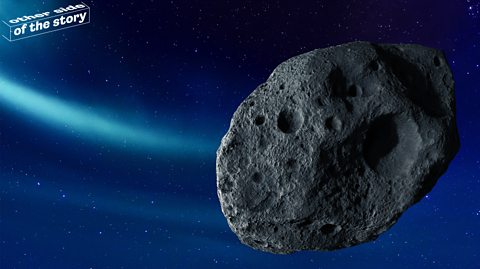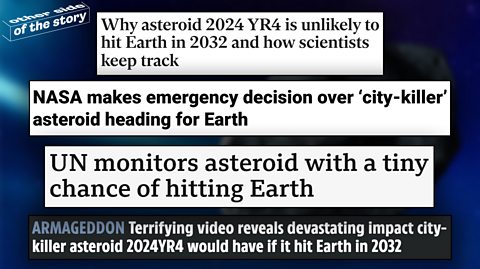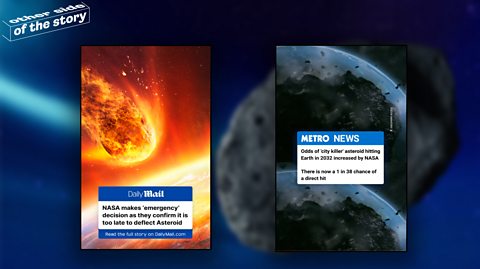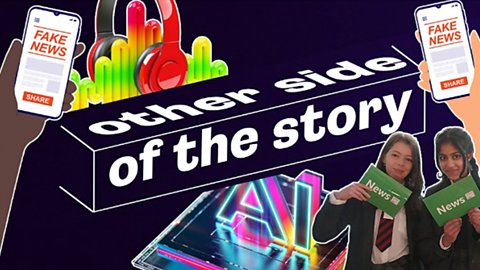
You may have seen stories on your socials and on the news about an asteroid called 2024 YR4 that has 'a tiny chance of hitting Earth' in 2032.
The news has been reported in very different ways, with some news outlets describing the asteroid as a 'city-killer' and talking about 'Armageddon', while others have described how there is a 'slight chance' it could collide with Earth and that you 'shouldn't worry'.
We take a look at some of the contrasting headlines and social media posts, as well as what the scientists have said about the asteroid.
Will an asteroid hit the Earth in 2032?
Firstly, let's clear up the BIG question, will an asteroid hit the Earth on 22 December 2032? According to NASA, the global leader in space exploration, there is a 2.6% - or less than three in 100 - chance of a collision in what is described as 'a very small chance'.
The asteroid is estimated to measure 40 to 90 metres across, about the length of a football pitch. When you compare this to the asteroid that killed the dinosaurs, which was estimated to be 6 to 9 miles in length, 2024 YR4 is very small.
Scientists are continuing to monitor the asteroid and the NASA website states that more observations will mean 'its impact probability will become better known'.


What are news outlets saying about the asteroid?
So if the chance of impact is so low, why are we seeing sensationalised headlines like 'Risk of football pitch-sized asteroid hitting Earth doubles in a week' or 'ARMAGEDDON Terrifying video reveals devastating impact city-killer asteroid 2024YR4 would have if it hit Earth in 2032', even in some well-known news outlets?
Headlines often use emotive language to draw you in as they can evoke fear, outrage, anger and other emotions. If you see a headline that is written like this, it might be clickbait. If you come across an article online, look at the language used in the headline and consider whether it’s actually a matter of interest to you or if you’re just being manipulated into clicking.
It's important to look at both sides of a story and gather all the facts before making your mind up about it. There are plenty of headlines about the asteroid that don't cause alarm, such as 'Why asteroid 2024 YR4 is unlikely to hit Earth in 2032 and how scientists keep track' or 'UN monitors asteroid with a tiny chance of hitting Earth'.

Asteroid 2024 YR4 on social media
The buzz around asteroid 2024 YR4 has also spilled over onto social media - and with speculation ramping up, there have been 2,000 posts with the hashtag #Asteroid on TikTok in the last week.
News outlets have been using their social media pages to post videos about the asteroid, with some of the posts attracting more than 40 million views. In these examples from the Daily Mail and Metro, the cover text uses emotive language such as 'emergency,' 'city killer' and 'too late to deflect asteroid' that could cause fear in anyone reading the posts. However, people who click to watch the Daily Mail video will notice that it doesn't mention anything about NASA aside from the cover text. The caption alongside the video also fails to expand on any information from the headline, and there is no link on the post to an article about the asteroid for anyone wanting to find out further details.
Clickbait-style headlines that use emotive language to catch your attention can be hard to resist when you're swiping through social media posts. Watch this video to find out more about how they can hijack your brain.
This article was published in February 2025

Not sure if the news you’re seeing on social media is true or false? Can you always tell if the things you see online are real or fake? Learn how to get the other side of the story with our quizzes, videos and explainers.


